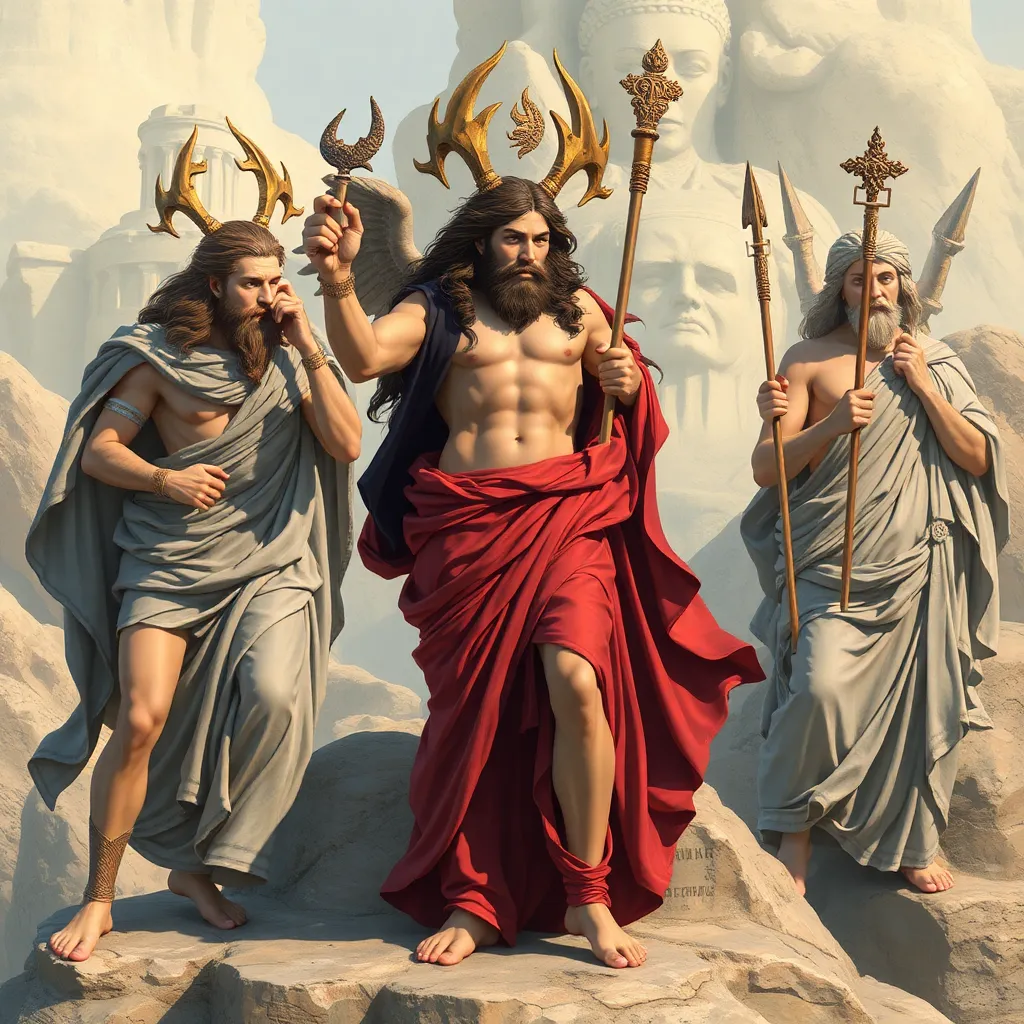The Role of the Gods in the Betrayal of Jason by Medea
I. Introduction
The myth of Jason and Medea is a profound tale woven into the tapestry of Greek mythology, encapsulating themes of love, betrayal, and vengeance. Jason, a hero of the Argonauts, sought the Golden Fleece, aided by the skilled sorceress Medea. Their relationship, initially passionate and devoted, spirals into one of betrayal and tragedy, revealing the intricate dynamics between mortals and the divine.
In Greek mythology, the influence of the gods is paramount; their whims and desires often dictate the fate of mortals. This narrative serves as a reminder of the fragility of human emotions when entangled with divine machinations. The gods play a crucial role in shaping the events leading to Jason’s betrayal by Medea, illustrating the complexities of fate, love, and vengeance.
II. The Divine Origins of Medea’s Powers
Medea, daughter of King Aeëtes of Colchis, possesses a lineage that is deeply intertwined with the divine. Her connection to Hecate, the goddess of magic, witchcraft, and the night, grants her extraordinary powers. This divine heritage is not merely a background detail; it is central to her identity and actions throughout the myth.
The significance of Medea’s magical abilities cannot be overstated. They allow her to perform feats that manipulate fate itself, from enchanting Jason to providing him with the means to conquer the challenges set before him. These gifts influence her choices, often leading her down paths that intertwine her fate with that of the gods.
III. The Role of Aphrodite in Jason and Medea’s Relationship
Aphrodite, the goddess of love, plays a pivotal role in the union of Jason and Medea. It is she who, in response to the pleas of Eros, instills a passionate love within Medea for Jason. This divine intervention is crucial, as it binds Medea to Jason, driving her to betray her own family and homeland to assist him in his quest.
The impact of love and passion on Medea’s loyalty is significant. Her feelings for Jason compel her to abandon the expectations of her lineage and the consequences of her actions. However, this divine influence also sets the stage for tragic consequences, as love, when manipulated by the gods, can lead to devastating outcomes.
IV. The Influence of Hera and Zeus on Jason’s Fate
Hera, the queen of the gods, takes a personal interest in Jason’s quest. Her protection of him stems from her resentment towards Pelias, Jason’s uncle, who had wronged her. Hera’s motives are complex, as she wishes to see Jason succeed but also to ensure that he is ultimately deserving of his fate.
Zeus, as the ultimate arbiter of fate, also plays a crucial role in the unfolding events. His decisions and interventions often reflect the broader themes of justice and moral order in the universe. The actions of Hera and Zeus set the stage for the eventual betrayal, showcasing how divine favor can manipulate mortal destinies.
V. The Consequences of Divine Favor and Disfavor
Throughout the narrative, the shifting allegiances of the gods serve as a reminder of the capricious nature of divine favor. At times, Medea is blessed with powerful support; at others, she becomes a target of divine retribution. This fluctuation highlights how divine support can lead to tragic outcomes.
The idea of divine justice and retribution is prevalent in the myth. As Medea’s actions become increasingly desperate, the gods’ shifting loyalties reflect the moral complexities of the narrative. Her sacrifices, driven by love and later by vengeance, illustrate the harsh realities of divine intervention in human affairs.
VI. Medea as a Victim of the Gods’ Manipulations
Medea’s emotional state is profoundly impacted by the divine machinations that surround her. Initially a devoted lover, her transformation into an avenger illustrates the tragic consequences of divine influence. The gods, through their manipulations, strip her of agency, turning her from a passionate woman into a vengeful figure consumed by anger.
This portrayal of Medea as a pawn of the gods emphasizes the theme of victimhood in the face of divine caprice. Her drastic choices, including the murder of her own children, are framed as tragic responses to the overwhelming forces at play, blurring the line between her will and the will of the gods.
VII. The Final Act of Betrayal: Divine vs. Mortal Will
The climactic confrontation between Jason and Medea serves as the culmination of their tumultuous relationship, influenced heavily by the gods. As tensions rise, the role of the gods becomes increasingly evident in escalating the conflict. Jason’s betrayal of Medea, in favor of another, ignites her fury, leading to her most heinous acts.
This intersection of divine will and human choice illustrates the complex interplay between fate and free will. While Medea’s actions are driven by her own emotional responses, the divine influences that led to her betrayal of Jason cannot be overlooked, raising questions about accountability and moral responsibility.
VIII. Conclusion
In recap, the gods’ influence on Jason and Medea’s story is profound and multifaceted. From the divine origins of Medea’s powers to the manipulations of love and vengeance, the narrative reveals the complexities of human emotions entangled with divine will. The themes of fate, loyalty, and vengeance resonate throughout the myth, reflecting the age-old struggle between mortals and the gods.
The enduring legacy of this myth lies in its exploration of human and divine relationships, offering timeless insights into the nature of love, betrayal, and the consequences of divine intervention in mortal lives.




